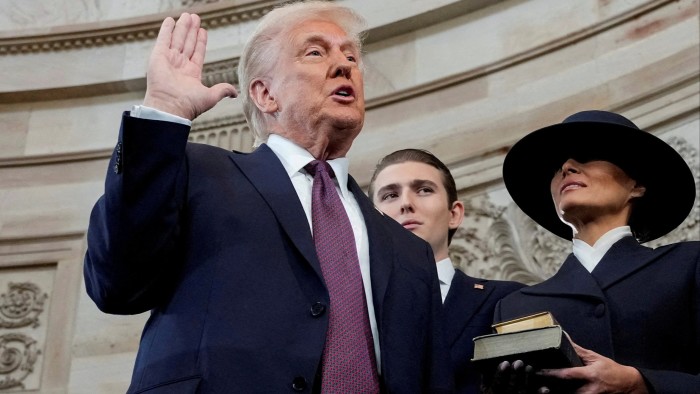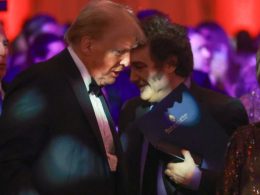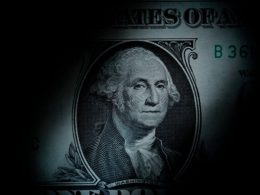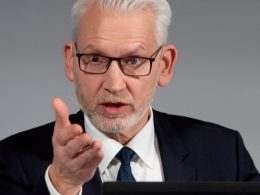Good morning.
Donald Trump has officially become the 47th US president, crashing into office with a slate of largely domestic policy initiatives and pledging a “golden age of America”.
Below, I look at Europe’s cowed response to Trump’s first hours. And our central Europe correspondent has a dispatch from a no-confidence vote in Slovakia.
Best wishes
Donald Trump has vowed to “tariff and tax foreign countries” — but held off on announcing concrete trade measures for now, eliciting a collective sigh of relief and placid reactions around Europe.
Context: Trump was inaugurated in Washington yesterday, immediately announcing measures to deport undocumented migrants, ramp up oil and gas supply and expand American territory — but holding off on tariffs, for now.
During his speech, Trump announced an “overhaul of our trade system to protect American workers and families”.
“Instead of taxing our citizens to enrich other countries, we will tariff and tax foreign countries to enrich our citizens,” he said.
EU leaders rushed to congratulate Trump with messages posted on social media, carefully avoiding any reference to his first policy announcements.
European Commission president Ursula von der Leyen, EU Council president António Costa and chief diplomat Kaja Kallas sent co-ordinated “best wishes”. “The EU looks forward to working closely with you to tackle global challenges,” they wrote in identical messages to Trump on X.
Other EU leaders sent equally generic congratulations, glossing over any differences. “The US is our closest ally and the aim of our policy is always a good transatlantic relationship,” wrote German Chancellor Olaf Scholz.
Given that only a select group of rightwing politicians — including Italy’s premier Giorgia Meloni — was invited to Washington, it seems many are keen to keep the president on their side, and get their own meeting with him.
“There is still the hope that we can stabilise things with him. The expectation is that we will pay a bit, on trade, but ultimately Ukraine will bring us together around a table,” said one EU official.
But while Trump’s first actions as president have not directly hit the EU, the White House also announced the US was leaving the Paris climate accord, a devastating blow for global efforts to fight climate change, which the EU has championed.
He also vowed to be a “peacemaker”, without making any direct reference to his campaign promises to end the war in Ukraine within six months.
“Trump’s inauguration must be met with our clear determination: To defend global democracy. To fight climate change. To stand with Ukraine as long as it takes,” Terry Reintke, co-leader of the Green party in the European parliament, wrote on X. “Now more than ever, the European Union must act united.”
But with Europe’s nationalist right devoted to Trump, and centrist politicians afraid to ruffle his feathers, it is unclear how united a front the EU can present against him.
Chart du jour: Saturation
Revenues from liquefied natural gas are expected to drop this year, as the volatility caused by Russia’s full-scale invasion of Ukraine subsides.
Fighting stance
One of Europe’s most Russia-friendly leaders faces a test of his power today: Slovakia’s parliament will hold a no-confidence vote on Prime Minister Robert Fico’s government over his closeness with Moscow, writes Raphael Minder.
Context: Fico is serving his fourth mandate as prime minister, which he has used to tighten his grip on power and limit anti-corruption investigations. His fragile three-party coalition won parliamentary elections in September 2023, pledging to end military support to Ukraine.
Last month, Fico made a surprise trip to Moscow to meet President Vladimir Putin, days before Ukraine closed a gas pipeline that was supplying Slovakia with Russian gas.
Fico has since threatened retaliation over Kyiv’s pipeline shutdown, which also deprived Slovakia of about €500mn a year in gas transit revenues. Yesterday, he visited Ankara to discuss alternative gas supplies via Turkey.
Opposition lawmakers want Fico to resign over his closeness with Putin, and people have taken to the streets in protest since Fico’s Kremlin visit.
Fico is expected to narrowly survive today’s vote in parliament, albeit with a wafer-thin majority.
Far from trying to appease his opponents, Fico issued a combative statement yesterday, acknowledging that the EU and Nato remained a “vital space” for Slovakia, but warned that this could change.
He drew a comparison with the collapse of the Soviet Union and its Warsaw Pact: “Just as the Warsaw Pact fell, world events can send both the EU and Nato to the history books,” he said.
But while a Slovak exit from the EU still looks unlikely for now, snap elections might not, if Fico continues to raise the stakes.
What to watch today
-
EU finance ministers meet.
-
European Commission president Ursula von der Leyen, German Chancellor Olaf Scholz and Ukrainian President Volodymyr Zelenskyy give speeches at the World Economic Forum in Davos.
Now read these
Are you enjoying Europe Express? Sign up here to have it delivered straight to your inbox every workday at 7am CET and on Saturdays at noon CET. Do tell us what you think, we love to hear from you: europe.express@ft.com. Keep up with the latest European stories @FT Europe









